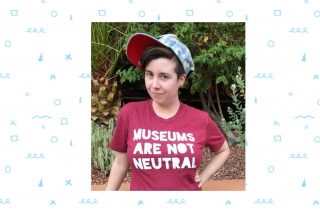Moving Forward After a Layoff: Blair Denniberg’s Job Search Success Story

Share
In this job search success story, Blair Denniberg of New Avenues for Youth shares her advice on how to grieve a layoff and move forward in your career.
What do you do for a career? Who do you work for?
I’ve dedicated my working years to serving nonprofit organizations that hold a strong commitment to social justice and education. I thrive working behind the scenes as an Executive Assistant, ensuring the leaders I support can effectively fulfill our mission. I worked in the museum field for over 12 years prior to the COVID-19 pandemic. After a surprising detour into unemployment, I saw a job posting for a nonprofit I long-admired: New Avenues for Youth. At New Avenues, I support our executive director as well as our development team. I feel fortunate every day to work alongside a team dedicated to preventing and ending youth homelessness in Portland.
How long did it take you to find this job?
Like so many others all over the country, I lost my beloved career on May 1, after my organization was forced to downsize due to COVID-19. It took me short of two months to find and land the opportunity at New Avenues for Youth.
How did you find your job? What resources did you use? What tool or tactic helped the most?
I knew I wanted to be very discerning about where I would be applying for my next career move, even in the midst of a pandemic. I wanted to ensure I was applying to organizations whose missions excited me. Every weekday of my unemployment, I made a routine for myself. One of those tasks, in-between doting on my cats, and watching the Price is Right, was searching Mac’s List for that one posting that gave me a jolt of excitement. Most days, nothing excited me, and that was okay. I knew I had to be patient.
When those job postings that did excite popped up, I carved out time to write an original and heartfelt cover letter. I took time to research the organization and educate myself. I took time to carefully share my story, who I was, what I was passionate about, and why I wanted to join their team. I wrote about my commitment to anti-racist practices and education, my enthusiasm for their mission, my dedication to a progressive organizational culture, and how I could help them as their Executive Assistant. I found my honesty, enthusiasm, combined with a little vulnerability worked very well, and earned me four out of the five interviews I went after during my unemployment.
What was the most difficult part of your job search? How did you overcome this challenge?
Although I like to fancy myself a confident interviewer, getting rejection after rejection can wear on you very quickly. I quickly learned that a rejection must be viewed as a positive redirection, not as a personal failure.
Furthermore, who knew interviewing on Zoom would be so much more awkward than it already is in real life? I found myself embarrassed by the shaky bandwidth on my budget Chromebook many times mid-interview. Sometimes interviewers couldn’t hear me, or I’d freeze, or some other awkward moment would happen. I found I would often lose my train of thought when technical difficulties popped up. My advice to job seekers is to prepare for those moments, because they are inevitable. Be sure to jot down the interviewer’s questions, so if you get distracted, you can refer back to your notes.
What is the single best piece of advice you would offer other job-seekers?
When I was suddenly laid off, I felt broken. I felt like something I built for a decade was demolished right in front of me and there was nothing I could do about it. My advice, especially to those that find themselves unemployed right now, is to take the time to grieve the loss of your career or organization. Once you’ve given yourself time to heal, remember: you should dedicate your working life to the values you believe in, not an organization. One of the hardest things about losing my previous career was that my personal identity was so tethered to the museum profession. When I lost that, I had to take a personal inventory focusing on what made me so passionate about the museum field. From this introspection, I learned I was dedicated to social justice, education, and combating white supremacist culture. From there, I sought out organizations that aligned with those values. That’s when I found New Avenues for Youth.
Why do you love your job?
I love that every day I can see the tangible impact my organization makes on the community, helping some of our most vulnerable populations with a progressive and trauma-informed lens. Although I was familiar with New Avenues prior to being employed, I had no idea the wide breadth of services the organization offers all over Multnomah County. My colleagues are some of the most dedicated folks I have ever had the pleasure to work alongside.
Everyone’s job search story is different, but each individual story can inspire and empower others who are on their own unique path. We love to hear how our readers have found rewarding careers in Portland, and we want to share these stories with you to inspire you in your job search and to help us all better understand the local job market!